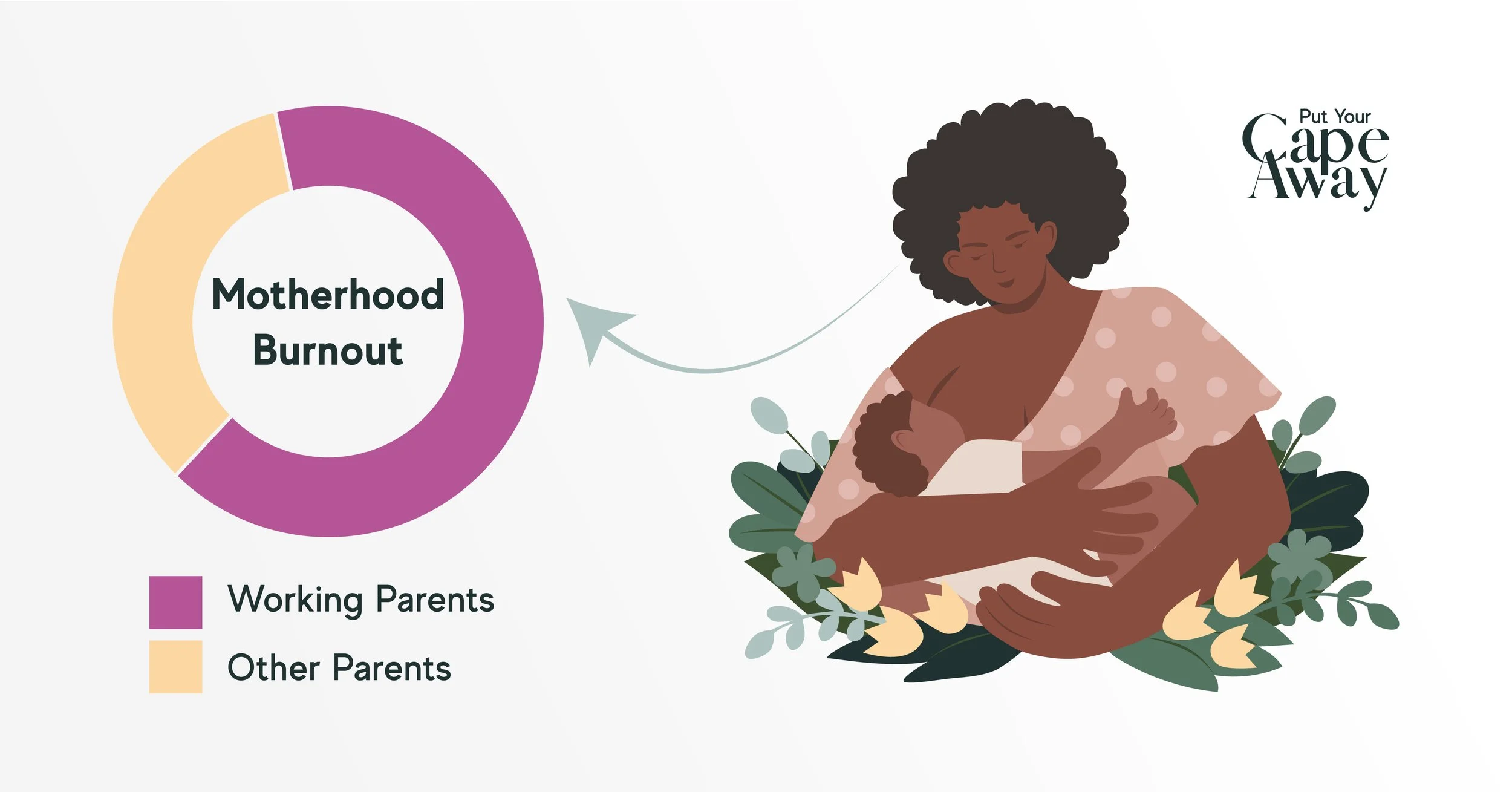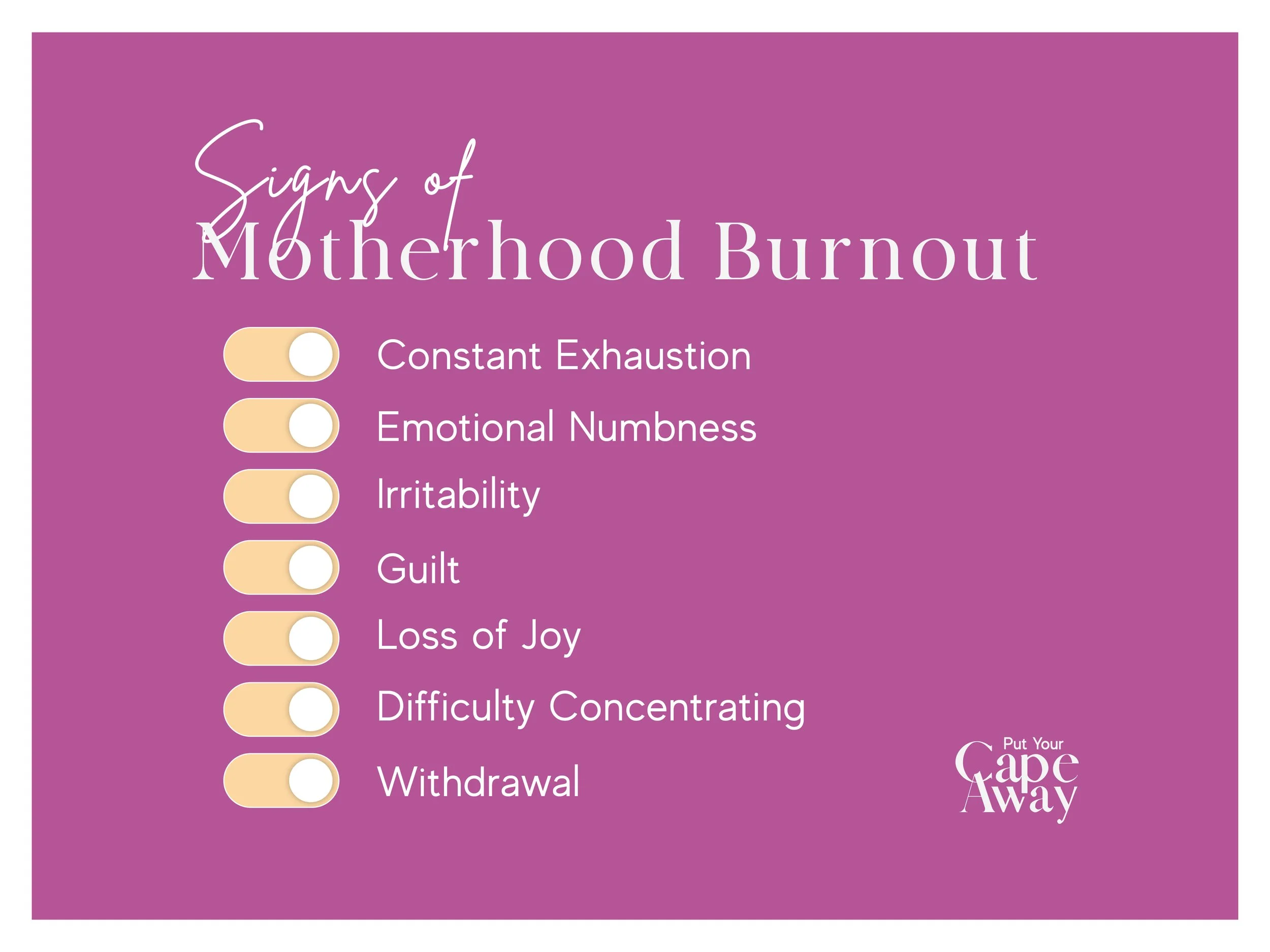Motherhood Burnout: How to Recognize It and Reclaim Your Energy
Motherhood is beautiful, but let’s be honest it’s also overwhelming. The late nights, endless to-do lists, and constant demands can drain every ounce of energy you have. If you’ve ever felt exhausted, irritable, or emotionally detached from your role as a mom, you might be dealing with motherhood burnout, and trust me, you’re not alone.
For the longest time, I thought exhaustion was just part of being a mom. I told myself that feeling drained, snapping at my kids, and barely keeping my head above water was normal. But it wasn’t. It was motherhood burnout, and it was affecting not just me but my entire family.
In this post, I want to talk about what motherhood burnout is, how to recognize the symptoms, and most importantly how to recover and reclaim your energy. Because mama, you deserve to feel like yourself again.
What is Motherhood Burnout?
Motherhood burnout is a state of chronic emotional, mental, and physical exhaustion that happens when the demands of being a mom outweigh your ability to cope. It’s not just about being tired but feeling completely depleted and struggling to find joy in motherhood.
One of the leading causes? Work-life imbalance. As working moms, we juggle careers, family, and personal responsibilities, often leaving little time for ourselves.
And here’s the tricky part: Many moms don’t even realize they’re burnt out. We push through, believing that exhaustion and being overwhelmed are just part of the job. But the truth is, when motherhood burnout goes unchecked, it can lead to:
Increased anxiety and depression
Weakened immune system, making you more prone to illness
Strained relationships due to irritability and detachment
Brain fog, making it harder to focus or make decisions
Neglecting self-care, leading to health problems
But perhaps the most heartbreaking part? Our kids see everything. When we run ourselves into the ground, we unknowingly teach them that self-sacrifice is the norm. And that’s not the message we want to pass down.
Why Motherhood Burnout is a Serious Issue
Let’s be clear: motherhood burnout isn’t something you can just push through. Ignoring it can take a serious toll on your mental, emotional, and physical health. Here’s how:
Increased risk of anxiety and depression: When you’re constantly running on empty, it’s easy to feel overwhelmed and hopeless.
Weakened immune system: Chronic stress can make you more susceptible to illness, leaving you feeling even more drained.
Strained relationships: Burnout can make you irritable and short-tempered, which can lead to conflicts with your partner, kids, or friends.
Difficulty concentrating: When you’re burnt out, even simple decisions can feel overwhelming.
Physical symptoms: Headaches, muscle tension, and trouble sleeping are all common motherhood burnout symptoms.
But it’s not just about you. Motherhood burnout affects your family too. When you’re exhausted and overwhelmed, it’s harder to be present for your kids. And when they see you constantly sacrificing your own needs, they learn that self-care isn’t important and that’s not the message we want to pass down.
I once had a friend ask why I feel burnout practicing my motherhood when this is what I've always wanted. The answer is simple: motherhood, while beautiful, is relentless. It's a 24/7 job with high stakes and often little recognition. It's normal to feel overwhelmed by something you love deeply.
Signs of Motherhood Burnout
Constant exhaustion: You feel tired all the time, even after a full night’s sleep.
Emotional numbness: You feel disconnected or detached from your emotions.
Irritability: Little things that wouldn’t normally bother you suddenly feel like a big deal.
Guilt: You feel like you’re never doing enough, no matter how hard you try.
Loss of joy: Activities that used to bring you happiness like playing with your kids now feel like a chore.
Difficulty concentrating: You struggle to focus or make decisions.
Withdrawal: You find yourself pulling away from family or social activities.
Physical symptoms like tension headaches, muscle tightness, and trouble sleeping are also common motherhood burnout symptoms. You might find yourself getting sick more often or developing chronic pain that seems to have no physical cause.
Before full-blown burnout hits, your body and mind will often send warning signals. Pay attention if you:
Find yourself constantly saying, "I'm just tired" when asked how you are
Feel resentful toward your partner, children, or colleagues
Catch yourself fantasizing about running away or being alone
Notice you're more forgetful or making unusual mistakes
Have trouble being present or finding joy in activities you used to love
These early warning signs are your internal alarm system telling you that something needs to change before burnout sets in completely.
How I Manage Motherhood Burnout as a Working Mom
As a working mom of two, I don’t have the luxury of waiting until I “find time” to prioritize my well-being, so I have to be intentional about it. Here are the three strategies that have helped me prevent and manage burnout:
1. Prioritizing Myself Like Someone I Love
For a long time, whenever life got busy, the first thing I sacrificed was my own needs: exercise, quiet time, even eating proper meals. I told myself, “I don’t have time.” But the truth is, if we don’t prioritize ourselves, no one else will.
Now, I schedule self-care the same way I schedule work meetings. My family knows that if I have Pilates at 5 PM, that’s non-negotiable. If I want to journal, go for a walk, or listen to music, I make it a priority not an afterthought. Here are some self-care habits I prioritize:
Pilates and gym workouts
Quiet time for journaling and reflection
Listening to music that lifts my mood
Eating nourishing meals (instead of skipping meals due to busyness)
Takeaway: You cannot pour from an empty cup. Taking care of yourself is not selfish. It’s necessary.
2. Doing Less & Setting Boundaries
There was a time when my weekends were packed with events, birthday parties, and activities both for myself and my kids. I said “yes” to everything, thinking it was my responsibility to show up.
Now? I’ve learned to say no.
I stopped over-committing myself and my family. I realized that just because an opportunity exists doesn’t mean I have to take it whether it’s a social event, a school activity, or even extra projects at work.
I limit unnecessary commitments that don’t align with my values.
I no longer raise my hand for every work project just to prove my worth.
I create a blank space on my calendar and remind myself that it’s okay to be less busy.
Takeaway: Just because your calendar is empty doesn’t mean you need to fill it. Rest is productive.
3. Asking for Help (Without Guilt)
For years, I prided myself on “doing it all.” I convinced myself that no one else could do things the way I could, but this only left me drained.
I started asking for help explicitly. Instead of assuming that my family knows what I need, I tell them. If my husband or kids can handle something, I delegate instead of overloading myself.
I also apply this at work. I've been in leadership roles where people expect me to have all the answers. But asking for help doesn’t mean you’re incompetent it means you’re human. Now, I ask for help by:
Assigning household tasks to my husband and kids
Delegating at work instead of taking on everything
Accepting support instead of feeling like a burden
Takeaway: You are worthy of support. People want to help just ask.
You Are Not Alone
If you're struggling with motherhood burnout, please know you are not alone. So many moms suffer in silence because of guilt or shame but you don't have to.
Talk to someone you trust a friend, partner, or therapist
Share your experiences with other moms who understand
Prioritize yourself and set boundaries
Motherhood burnout is real but it doesn't have to define your life. You deserve to experience the joy of motherhood without the weight of exhaustion and overwhelm. Taking steps to address burnout isn't selfish, it's an act of love for yourself and your family.
Remember: The goal isn't to be a perfect mother, it's to be a present, healthy one. And sometimes, that means putting your own oxygen mask on first.
If you're nodding along to this article, know that you're exactly the kind of mom who would thrive in our PYCA community.
We're building a community of mothers who are learning to thrive, not just survive. We share real stories, practical strategies, and genuine support for working moms who are ready to put down the cape and pick up their power. Want to be part of a movement that's redefining motherhood on our own terms? Join our community today




